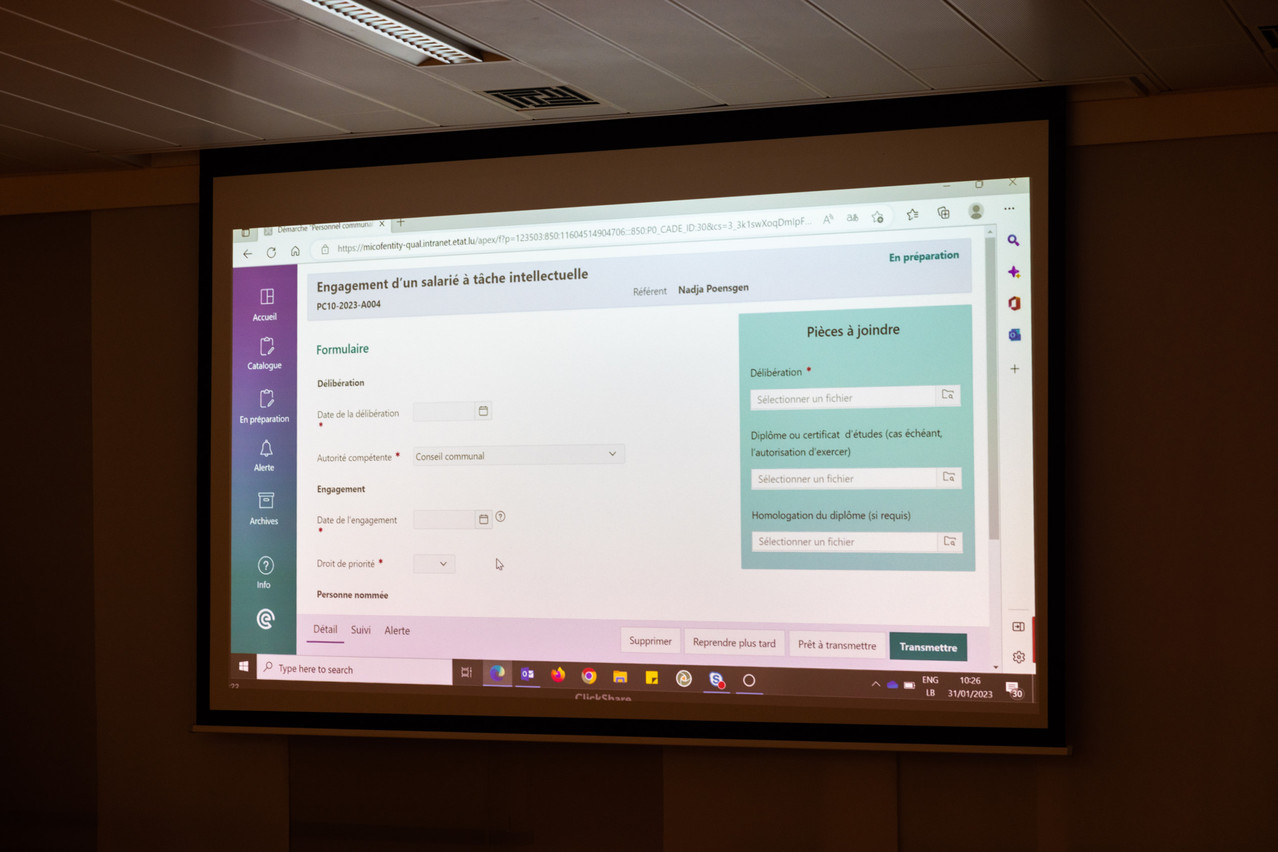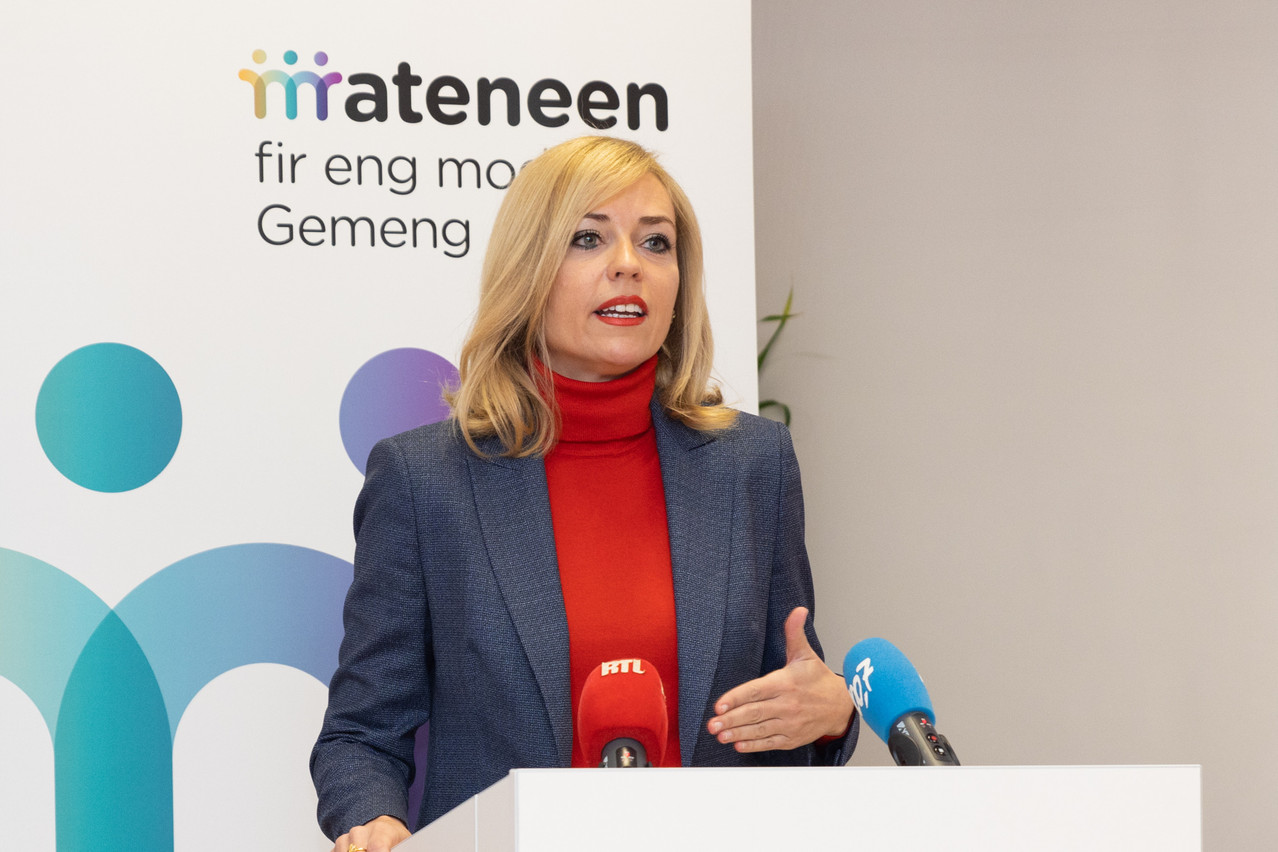“The framework that governed the administrative supervision of the municipalities was older than I was,” said (LSAP). There is no need to be more precise about the age of the minister to make it clear that it was high time that Luxembourg moved into the “smart”, i.e. technology-based, era.
More than five years after her predecessor (LSAP) started discussions with the union of Luxembourg towns and municipalities (Syvicol), Bofferding took the perilous gamble of collaboration and participation to start dusting off the municipal law. From the regional forums where more than 6,300 citizens were able to add their suggestions to the two presentations of the results in Schengen and Belvaux--and through the reluctance of the state council and the union--the process ended with a unanimous vote in the Chamber of deputies on 22 December. The leitmotiv was twofold: transparency and administrative simplification.
On Tuesday 31 January, the day before the new law comes into force, Bofferding, alongside Syvicol president Emile Eicher, gave a first overview of its concrete applications.
A more precise timetable
The platform presented will allow municipalities to submit documents that, for the time being, concern personnel matters and those related to real estate projects, but also to know instantly that their file has been transmitted and that it will be processed within three months. Otherwise, the validation of the municipal decision will be deemed to have been taken.

A simple platform that will allow communes to transmit documents on personnel or real estate matters to obtain the ministry’s assent. Photo: Romain Gamba/Maison moderne
“No more accusing the Post of dragging its feet,” came a comment in the ministry’s conference room. It will be up to the municipalities to designate the person who will have access to the platform and to provide them with a token to ensure that the system is not circumvented.
We will have more communal data and this will allow us to improve decision-making and achieve communal policies."
By 2025, the minister promised, all decisions should be digitised like this to make relations between municipalities and the supervisory authorities more fluid, giving municipalities more confidence and responsibility.
Are finances included? Obviously, in light of in Hesperange, the home affairs minister and the president of the communes union have assured their willingness to find solutions to respond to this type of “criminal intent”. This could mean the creation of a new municipal position in charge of the internal audit, though this remains unconfirmed.
First “audit” of municipal finances
The platform presented on Tuesday morning is unrelated to another development: the municipalities have already digitised their “monthly collector’s files” which are already monitored on e-Mint (their form is; not their content). How much of its budget has a municipality already spent? How much wiggle room does it have? How much debt? On the big screen, green lights indicate that everything is in order, yellow lights that the situation needs to be monitored and red lights that the situation has--at least temporarily--slipped, which can be perfectly justified depending on the development of infrastructure projects. “There is always a logical explanation,” say the tool’s promoters, who insisted on collaboration with the municipalities during a demonstration on Monday, the day before the press conference.
This other service complements the inspections--one per year and per municipality--carried out by the ministry.
If any colour but green shows up, the ministry will invite the municipality to pay attention, or even to explain what is going on. Good cooperation is the other aspect that the minister emphasised during the press conference. “Since the start of the development of this project, we have recruited new profiles to become more of a partner to the municipalities. On the platform, there is even a hotdesk service available online or by phone to help the municipalities,” she explains.
The rights and duties of the elected municipal official
Also in the works is AI technology that will check that the accounting plan is correctly applied by the municipalities. Again, it is not a question of whether a handiwork bill should be paid, but whether it is placed on the right accounting line.
“We will have more communal data,” the minister acknowledged, “and this will allow us to improve decision-making and achieve better communal policies.”
After this first step of communal reform, the minister also mentioned bill 8052, which revises the rights and duties of the local elected representative, and another text which will regulate the participation of citizens in communal life. “After this intensive and long process, we will be at your side for the projects to come,” promised Eicher, who described this first step as “an example that other ministries should follow”.
This story was first published in French on . It has been translated and edited for Delano.

